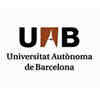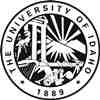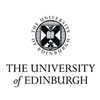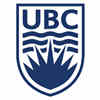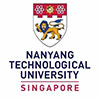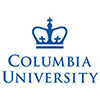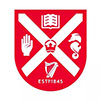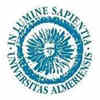英国斯特林大学博士后职位—水产养殖、海洋科学、环境建模

英国斯特林大学博士后职位—水产养殖、海洋科学、环境建模
Postdoctoral Research Fellow
University of Stirling
Description
Applications are invited for a Postdoctoral Research Fellow position to work on a new interdisciplinary research project “Addressing the ability of marine aquaculture to respond to climate change using systems thinking and precision- based frameworks”, funded through the UKRI Future Leaders Fellowship (FLF) Programme. The post will be based in Stirling and the successful candidate will become part of a wider team, working with key stakeholders and project partners in the UK and internationally.
The overall research aim of this £1.5 million project is to deliver a rigorous scientific framework for assessing impact of climate change on marine aquaculture using systems thinking and precision-based information. This project is highly interdisciplinary, covering aspects of climate, environmental, biological, and social science. The research will generate new knowledge, methodologies, models, and tools that will benefit academics, industry, and policymakers in the UK and internationally.
This Postdoctoral Research Fellow position will involve the development and use of system dynamic models to simulate potential impacts of climate change at aquaculture farm-level. Atlantic salmon ( Salmo salar ) aquaculture in the Northeast Atlantic (Scotland and Norway) is the primary focus.
Informal inquiries are welcome and should be directed to Dr Lynne Falconer, Institute of Aquaculture, Faculty of Natural Sciences (lynne.falconer1@stir.ac.uk).
Description of Duties
This position focuses on developing improved approaches through system dynamic modelling to simulate impact of climate change at aquaculture farm-level.
The main responsibilities of the post holder will be:
Work with the project team and partners to collect, collate, process, and analyse a wide range of data from diverse sources.
Support fieldwork activities and collection of data on environmental change using data loggers and sensors.
Develop and use farm-scale system dynamic models for climate change impact assessment.
Use scenario analysis to explore potential impacts of climate change and implications of different adaptation responses.
Write and contribute to publications and disseminate research findings using other appropriate media.
Deliver presentations at conferences, project meetings, stakeholder engagement workshops, and other relevant events.
Co-supervise undergraduate and postgraduate student research projects.
Support organisation of project meetings and stakeholder engagement events.
Undertake other appropriate project-related duties as required.
Essential Criteria
Qualifications
A PhD (or near completion) in Aquaculture, marine science, environmental modelling, or a related field
Knowledge, Skills & Experience
Extensive experience in modelling environmental systems and/or aquaculture modelling
Extensive experience in data acquisition, processing, analysis, and interpretation
Interest in aquaculture and climate change
Evidence of self-motivation and the ability to work independently
Evidence of being able to work as part of a team
Excellent computing skills, including modelling, statistical and data handling packages
Excellent time management skills including ability to prioritise workload
Desirable Criteria
Knowledge, Skills & Experience
Experience in aquaculture
Experience of system dynamic modelling
Evidence of working in an interdisciplinary environment
Track record of research publications in areas relevant to the post
Behaviours and Competencies
The role holder will be required to evidence that they can meet the qualities associated with the following behavioural competencies, as detailed within the AUA Competency Framework.
Managing self and personal skills Being aware of your own behaviour and mindful of how it impacts on others, enhancing personal skills to adapt professional practice accordingly.
Delivering excellent service Providing the best quality service to external and internal clients. Building genuine and open long-term relationships in order to drive up service standards.
Finding solutions Taking a holistic view and working enthusiastically to analyse problems and to develop workable solutions. Identifying opportunities for innovation.
Embracing change Being open to and engaging with new ideas and ways of working. Adjusting to unfamiliar situations, shifting demands and changing roles.
Using resources effectively Identifying and making the most productive use of resources including people, time, information, networks and budgets.
Engaging with the wider context Enhancing your contribution to the organisation through an understanding of the bigger picture and showing commitment to organisational values.
Developing self and others Showing commitment to own ongoing professional development. Supporting and encouraging others to develop their professional knowledge, skills and behaviours to enable them to reach their full potential.
Working together Working collaboratively with others in order to achieve objectives. Recognising and valuing the different contributions people bring to this process.
Achieving Results Consistently meeting agreed objectives and success criteria. Taking personal responsibility for getting things done.







